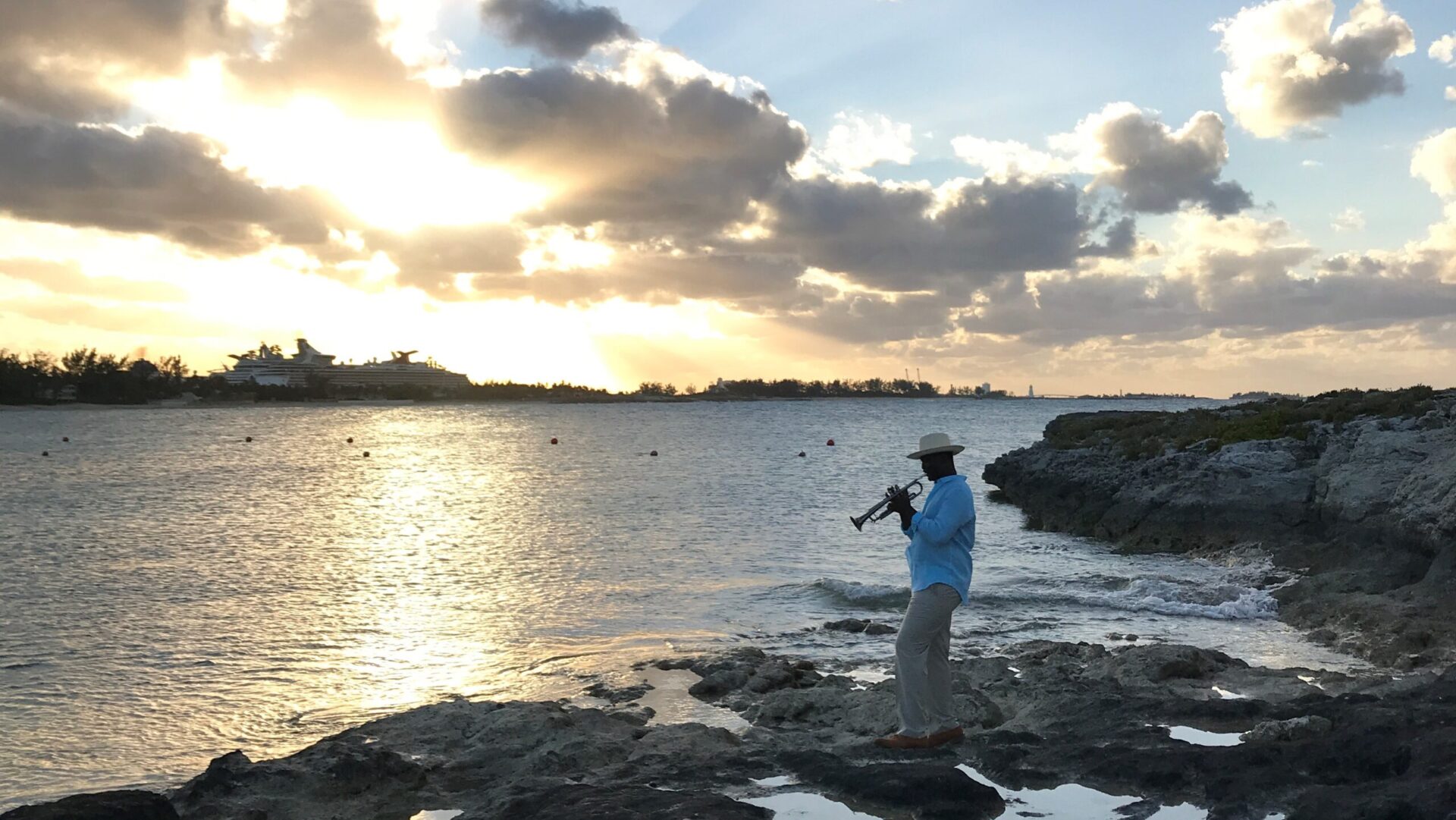The officer stormed out of the store, his face twisted in fury. Before I could react, he drew his gun and pointed it at me. The words he spat—”I will f***ing kill you, nigger!”—cut through the stillness like a blade. The metallic glint of the gun under the streetlights and the venom in his voice froze me in place. My heart thundered as if it were trying to escape, each second stretching into an eternity.
This was not the Durban I had envisioned, nor the South Africa I had imagined.
From Nassau to South Africa: An Unexpected Invitation
Months earlier, I stood on more familiar ground in Nassau, performing with the Bahamas National Youth Orchestra at a reception hosted by the Governor-General. The audience was distinguished, but one guest stood out: South African President Thabo Mbeki. It was December 2003, and our orchestra was part of the cultural display for his visit. As the music swelled and filled the grand halls of Government House, Mbeki’s admiration for our performance was unmistakable.
Afterward, he approached us, extending an invitation that felt surreal. He wanted us to tour South Africa, to share Bahamian music with his nation. For many of us, it was a dream come true—a chance to connect with the land our ancestors once called home. It was an opportunity shaped by history, as apartheid’s end in 1994 had opened South Africa to the world in ways that were unthinkable just decades before.
Our tour took us through Soweto, Port Elizabeth, and Durban, each stop a testament to the resilience of a nation grappling with its past. For me, a young Black man from The Bahamas, it was both inspiring and humbling.
The Night in Durban
Durban’s nightlife was the crescendo of our journey. After a day of performances, our bandleader allowed those of us over 18 to explore the city. My friends Nat and Gavin joined me in pursuit of the famed energy of Durban’s streets. We danced to rhythms unfamiliar yet magnetic, ate food bursting with flavors, and reveled in the sense of adventure.
But as the night wound down, our carefree exploration led us to a gas station convenience store. It was a quiet detour, illuminated by flickering neon lights. The arrival of the police car didn’t initially faze us. In Nassau, I’d seen police at gas stations countless times. But here, things were different.
The Gun and the Moment of Truth
When I leaned casually against the police car for a photo, I had no idea I was crossing an invisible line. The officer emerged, his rage palpable, his gun drawn. Time slowed as his words echoed in my ears: “I will f***ing kill you, nigger!”
South Africa’s police force has a long and troubled history. During apartheid, it was an instrument of state oppression, enforcing laws that dehumanized the majority population. Post-apartheid, reforms were promised, but the reality remains grim. Police brutality is rampant, with over 3,000 deaths attributed to police action from 2012 to 2022. Reports of torture, corruption, and systemic racism persist, undermining trust in the force.
In that moment, the weight of that legacy pressed down on me. I wasn’t just a tourist; I was a Black man in a country still healing from its scars.
Nat’s Intervention
Nat, my friend and a police officer in Nassau, stepped forward. His training and experience gave him the presence of mind to de-escalate the situation. Speaking calmly, he explained we were tourists who meant no harm. His tone was measured, his words chosen with care. Slowly, the officer lowered his gun and left without another word.
Drawing Parallels: Durban and Nassau
As the adrenaline faded, I couldn’t help but reflect on the similarities between South Africa and The Bahamas. Back home, the Royal Bahamas Police Force (RBPF) is also plagued by allegations of brutality and corruption. In 2021 alone, over 150 complaints of excessive force were filed against officers. Videos of officers slapping civilians and harassing young men have eroded trust in the RBPF, particularly among Black men who make up the majority of the population.
Like South Africa, The Bahamas struggles with holding officers accountable. Investigations into police misconduct often result in little more than public statements, with real justice remaining elusive.
The Fragility of Safety
That night in Durban became a symbol for me—a reminder that the struggles of young Black men are not confined to borders. Whether in Durban or Nassau, the fear of law enforcement stems from systems that prioritize power over accountability.
Both nations must grapple with their histories to build a future where trust in law enforcement is possible. In South Africa, the echoes of apartheid shape every interaction, while in The Bahamas, systemic failures perpetuate a culture of impunity. The solutions are complex but necessary: better training, independent oversight, and a commitment to justice.
Moving Forward
As I reflect on that night, I am grateful—for Nat’s bravery, for the chance to share our music with South Africa, and for the perspective gained from experiencing two worlds grappling with similar issues. But I am also determined. Stories like mine shouldn’t be common. In both The Bahamas and South Africa, change is long overdue.
That officer’s gun reminded me of the fragility of safety, but it also strengthened my resolve to push for a world where no one has to face that kind of fear—no matter where they are.
